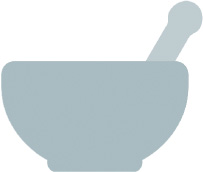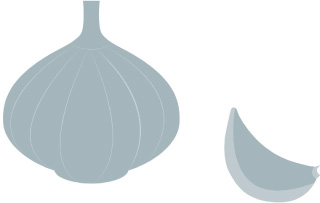
Stews are basic fare for everyday family cooking and are always served with vermicelli or plain rice. They are popular because they provide a wide range of nutrients from the meat, vegetables and rice, and supply the extra liquid so essential in a climate where dry weather is the norm for most of the year. The other explanation is purely economic as a relatively small amount of meat can go a long way into feeding a large family, especially during hard times and among the poorer population.
Stews are traditionally cooked with lamb or mutton, mostly untrimmed of the fat, although recently beef has come to replace lamb among the health conscious. Lamb is more tender and presents a wider choice of cuts; whether from the middle neck and shoulder, the shank, the loin or around the rib, these cuts are most likely to be juicy and appetising. The choices are more limited with beef, and depend on the grade of beef a cook can afford. The chuck or rib is generally standard for stews and requires longer cooking time than the lamb, but the meat will be tougher.
In a traditional kitchen the meat is first boiled with the spices and later fried in samneh, clarified butter to which special spices have been added. This procedure is ideal for lamb. However, with beef, it is advisable to brown the chunks on a high heat first in order to seal in the juices and obtain softer, less chewy meat. As the use of samneh has also decreased for health reasons – it is totally absent from many kitchens – a teaspoonful can be added at a later stage in cooking for the flavour.
In the preparation of stews, it is mostly the spices that give the dish you are preparing its particular Palestinian stamp. While pepper and allspice are the standard, nutmeg, cinnamon, cloves, cumin and coriander – I also like to add a hint of cardamom – are essential, but in very small quantities. It is therefore a good idea to keep a small jar of a mixture at hand, just enough to suit your need and the use you are going to make of them. For the recipes that need an additional quantity of a specific spice, it will be indicated in the ingredients.

This recipe is easy and can be prepared quickly. While it is not usual to prepare stews with minced meat, it was one way to convince my children to eat it when they were little. I cut the cauliflower in small florets, and eating this dish soon became an amusing adventure into a secret garden. Aida Shehadeh, who originally gave me the recipe, cooks it for them while they are visiting her in Paris. Of course, she keeps her own supply of spices, which she replenishes from her usual ‘attar, the spice vendor, at every visit to Palestine.
1 head of cauliflower
¼ cup vegetable oil
500 g (1 lb 2 oz) lean minced beef
1 medium onion
3 tbs vegetable oil
1 tsp salt
¾ tsp pepper
⅓ tsp allspice
⅓ tsp cumin
1 cup broth
(You can substitute the pepper and allspice with 1 tsp mixed spices)
Wash and dry the cauliflower. Cut into small florets, saving the rest of the vegetable for soup. Heat the ¼ cup oil in a wok and stir-fry the cauliflower in two batches or more, depending on the size of your wok. As you fry and stir, be careful not to break the florets. Leave the cauliflower to drain on kitchen paper while you prepare the meat.
Peel the onion. In a medium-size pan heat the 3 tablespoonfuls of oil, add the onion and the minced meat and brown while stirring. Add the salt and spices and cook for another few minutes. Add the cauliflower and broth and cook, covered, for 15 minutes. Serve very hot with vermicelli rice and a simple tomato and cucumber salad on the side.
M’loukhiyeh, or Jew’s mallow as it is known in certain countries in the West, is a green vegetable that grows in long thin stalks with dark green leaves that have a somewhat acrid taste. The marriage of fresh coriander, with its sweet aroma, with the m’loukhiyeh makes this dish quite unique. You can also add coriander seeds, different in taste from the fresh leaves in that they are slightly peppery.
In Palestine, dry coriander is more commonly used than the fresh leaves. Until recently, I have always favoured using the fresh leaves, perhaps influenced by my partly Syrian roots. However, at the advice of a friend, I have recently grown accustomed to adding a dash of the crushed dry seeds to balance the aroma of the leaves.
1 kg (2 lb 4 oz) of beef or lamb, cut in chunks for stew
¼ cup vegetable oil or 30 g (1 oz) butter
1 whole onion
2 tsp salt
1 tsp pepper
¾ tsp allspice
1 small cinnamon stick
(You can substitute the pepper, allspice and cinnamon with 2 tsp mixed spices)
400 g (14 oz) leaves of m’loukhiyeh, washed and drained
⅓ cup freshly squeezed lemon juice
6–8 garlic cloves, peeled
1 medium-sized bunch of fresh coriander
1 tsp of coriander seeds, crushed
1 tbs butter
In a large pot, brown the meat with the onion in hot oil on a high heat. Add the salt and spices and enough water to cover the meat. Cover the pot and bring to the boil then let it simmer on a low heat for 60–70 minutes or until the meat is cooked to your liking. The amount of time can vary according to the type and cut of meat you use, and to the way you like it done. Palestinians favour meat that is very well cooked and tender.
While the meat is cooking, finely chop the m’loukhiyeh, by holding the leaves lengthways in small bunches and cutting across with a sharp knife. Squeeze the lemons and chop the coriander leaves and the peeled garlic in the food processor.
As soon as the meat is done, remove the pieces and transfer to a serving plate and keep covered in a warm place until the m’loukhiyeh is ready. Add some water to the pot if you think it is not enough to cook the m’loukhiyeh leaves: you need at least 1½ litres of liquid. Add the lemon juice to the meat sauce, bring to the boil and add the chopped m’loukhiyeh. Leave to cook for 10 minutes uncovered.
Meanwhile melt the butter in a small frying pan and fry the garlic, the coriander leaves and the coriander seeds for 3 minutes while stirring. Add to the stew and cook together for another 5 minutes. Serve immediately accompanied by the meat, plain rice, ruz m’falfal, bread croutons and vinegar dressing.
The croutons are home-made from plain, toasted bread cubes. For the dressing, finely chop a medium-sized onion to which you add a dash of salt, the juice of one lemon and half a cup of white vinegar.
It is best to serve this stew in soup plates. Start with some bread croutons in the bottom of the plate and ladle out some of the stew, then serve the rice over the m’loukhiyeh, top with some more stew and meat and sprinkle some vinegar dressing. Saha u ‘afieh! Enjoy!
Tips
It is important to add the lemon juice before the leaves in order to prevent the m’loukhiyeh from becoming runny.
After adding the m’loukhiyeh leaves, cook uncovered in order for the juice and the leaves to blend well.
This is a long-time favourite. The tomato and garlic sauce brings out the tangy taste of the okra.
Buying okra in the local markets is an exercise in patience as it is important to select the small tender pods as they are less chewy, which means you have to get up early and hit the vegetable stalls while the farmers are still unloading their boxes of fresh produce. If you are lucky, you may have your own neighbourhood supplier who can bring it fresh from the fields to your door. Even if they are not small enough to your liking, their freshness is enough of an incentive to make you buy the whole lot. You cook what you need and freeze the rest, through either blanching or frying, to use when they are out of season.
1 kg (2 lb 4 oz) beef or 1–1.2 kg (2 lb 4 oz–2 lb 11 oz) lamb, cut up in chunks for stew
1 whole onion
3–4 tbs vegetable oil
2 tsp salt
1 tsp pepper
¾ tsp allspice
800 g (2 lbs) fresh okra
3 tomatoes
1 green pepper
1 hot pepper (optional)
4 garlic cloves
3 tbs olive oil
2 tsp salt
½ tsp pepper
⅓ tsp allspice
In a large pan, brown the meat with the onion in hot oil. Add the salt and spices and enough water to cover the meat. Bring to the boil, then let it simmer for 60–70 minutes. The amount of time can vary according to the type and cut of meat you use. It is a good idea to consult with your butcher.
Meanwhile wash and dry the okra. The traditional practice is to fry it before adding it to the meat so as to avoid it getting sticky. As okra absorbs too much of the oil, it is important to let it drain on kitchen paper for a while before adding it to the meat. I prefer to add it raw and leave it to cook, uncovered, on medium heat for 30 minutes or until the okra is almost tender.
While the okra is cooking, peel and chop the tomatoes, and chop the green pepper and hot pepper after having removed the stems and seeds. The seeds of the hot pepper can be quite irritating for the digestion and it is important that they be entirely removed. Peel the garlic and chop it finely, or crush it in a garlic press.
In a large frying pan, heat the olive oil and add tomatoes, peppers and garlic. Add salt and seasoning and fry uncovered for 5 minutes.
Add to okra and cook for another 5 minutes.
This stew is best served with vermicelli rice.
Unlike in the West, Palestinians prefer their vegetables well cooked. Individual taste should determine the length of cooking for the vegetables; however, I find that okra is tastier with longer cooking.

Craving for food during pregnancy is serious business that needs attending to. Even those who dismiss it as an old wives’ tale fall for the trap when they happen to be the victim. Qussa b’laban was not one of my favourite dishes but when I was pregnant with my second child, I found myself constantly craving for it. The sense of wellbeing it brought on after my craving was gratified – my ever-fussy mother took care of that – it is one of the best memories I have of this pregnancy and it is as vivid and powerful now after all these years. Needless to say, it has become quite a favourite of mine. Served with vermicelli rice, this dish warms up any heart on a cold winter day.
1 kg–1.2 kg (2 lb 4 oz–2 lb 11 oz) lamb, cut up in chunks for stew
3 tbs and 1 tbs olive oil for the wok
2 tsp salt
1 tsp pepper
¾ tsp allspice
A dash of nutmeg
1.5 kg (about 3 lbs) fresh marrows
4 cups unflavoured yoghurt (laban)
4 tsp corn flour
2 tsp tomato concentrate
3 garlic cloves, crushed
2 tsp dried and crushed mint leaves
In a large pan, brown the meat in the hot oil. Add the salt and spices and enough water to cover the meat. Bring to boil then let it simmer for 60–70 minutes.
While the meat is cooking, wash and dry the marrows and cut them lengthwise once, then across so as to obtain small pieces. Add a tablespoonful of oil to a wok and stir-fry the marrows and the crushed garlic for a few minutes; cover the pan and let them cook in their juice for 5 minutes then add them to the meat when it is done.
In the same wok, measure the laban and add it to the cornflour, dissolved in 4 tbs of water, and the tomato concentrate. Bring to boil while stirring the mixture gently then add to the stew. Add the crushed mint leaves to the pot and simmer for five minutes more. Serve immediately accompanied with vermicelli rice.
Lamb meat is usually cooked with the bone; this goes for all stews. A favourite cut is the breast, which is carved into double cutlets, that is two ribs for every portion. When nicely trimmed, it is not as fatty as the shoulder. Some people will prefer to add ¼ tsp cinnamon and a tsp of nutmeg as lamb has a much stronger flavour.
1 kg (2 lb 4 oz) beef or 1 kg–1.2 kg (2 lb 4 oz–2 lb 11 oz) lamb, cut up in chunks for stew
1 whole onion
3–4 tbs vegetable oil
2 tsp salt
1 tsp pepper
¾ tsp allspice
(You can substitute the pepper and allspice with 2 tsp of mixed spices)
800g string beans, fresh or frozen
3 tomatoes
2–3 tbs tomato paste
In a large pan, brown the meat with the onion in hot oil. Add the salt and spices and enough water to cover the meat. Bring to the boil then let it simmer for 60–70 minutes. The amount of time can vary according to the type and cut of meat you use. It is to be noted that lamb cooks faster than beef; however, it is always better to consult your butcher. Remove the strings, then wash the beans and cut them up. Pour boiling water over the tomatoes and leave them for a few minutes. Peel and slice the tomatoes. Add the beans to the pan together with the peeled and sliced tomatoes; add the tomato paste and leave on medium heat for 30 minutes or until the beans are well done.
This stew is best served with vermicelli rice.

Traditionally grown spinach from the south of Bethlehem, with its delicate texture and flavour, renders this dish most special. Unlike the other stews I cook, the only spice I use for this stew is pepper so as not to interfere with the subtle flavour of the spinach.
1 kg (2 lb 4 oz) chunks of lamb or beef for stew
1 whole onion
¼ cup olive oil
1½ tsp salt
1 tsp pepper
1.3 kg (2 lb 15 oz) spinach leaves, trimmed and washed
5 garlic cloves, crushed
1 tbs olive oil or samneh
In a large pan, brown the meat with the onion in the butter. Add the salt and pepper and enough water to cover the meat. Bring to the boil then let it simmer for 60–70 minutes. The amount of time can vary according to the type and cut of meat you use; in Palestinian cooking, the meat is always cooked until it is very tender.
When the meat is done, add the spinach leaves either whole or coarsely chopped. Let them cook for ten minutes.
Meanwhile fry the crushed garlic cloves in one tbs olive oil and add to the stew while it is cooking.
Serve with vermicelli rice and wedges of lemon on the side.
1 kg (2 lb 4 oz) beef or 1 kg–1.2 kg (2 lb 4 oz–2 lb 11 oz) lamb, cut up in chunks for stew
1 whole onion
3–4 tbs vegetable oil
2 tsp salt
1 tsp pepper
¾ tsp allspice
1 small cinnamon stick
800 g fresh or frozen peas
In a large pan, brown the meat with the onion in hot oil. Add the salt and spices and enough water to cover the meat. Bring to boil then let it simmer for 60–70 minutes. The amount of time can vary according to the type and cut of meat you use. It is a good idea to consult with your butcher.
When the meat is done, add the peas and let them cook for another 20 minutes or until the peas are tender.
This stew can be served with vermicelli or plain rice, m’falfal.
